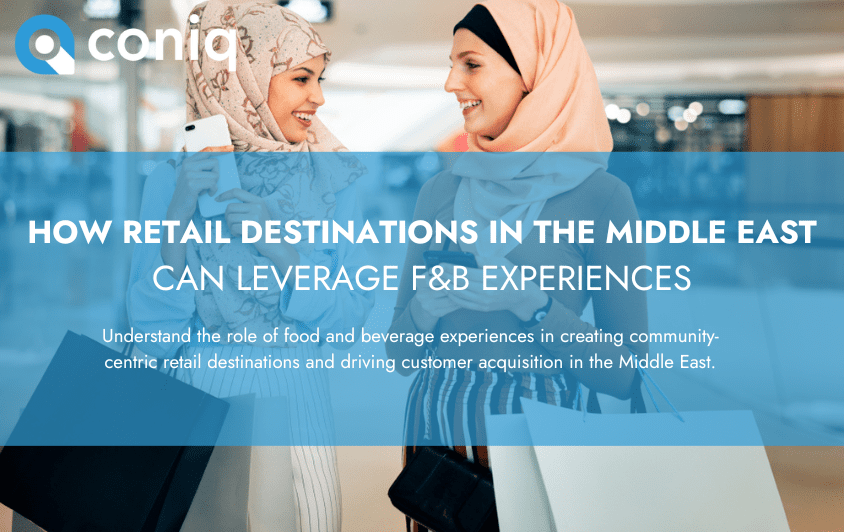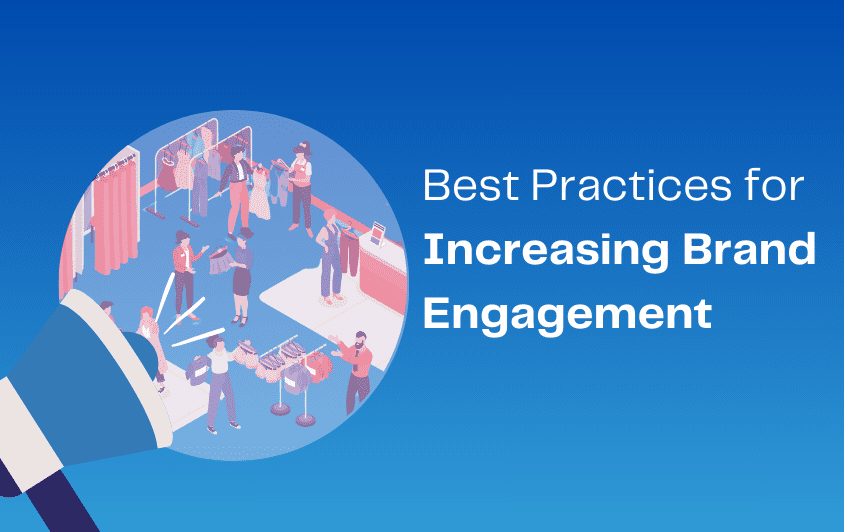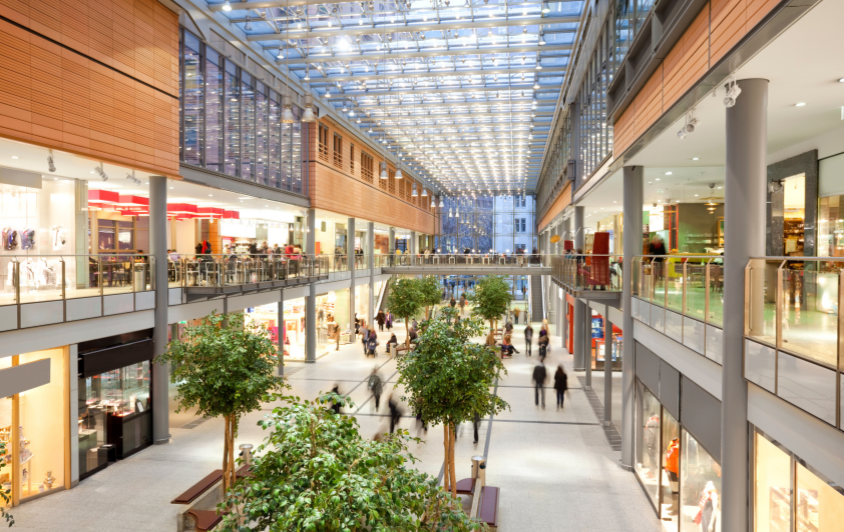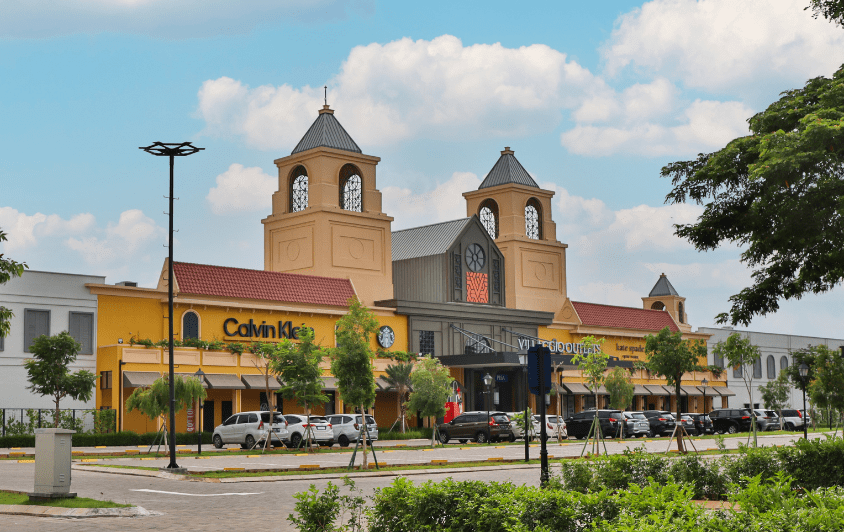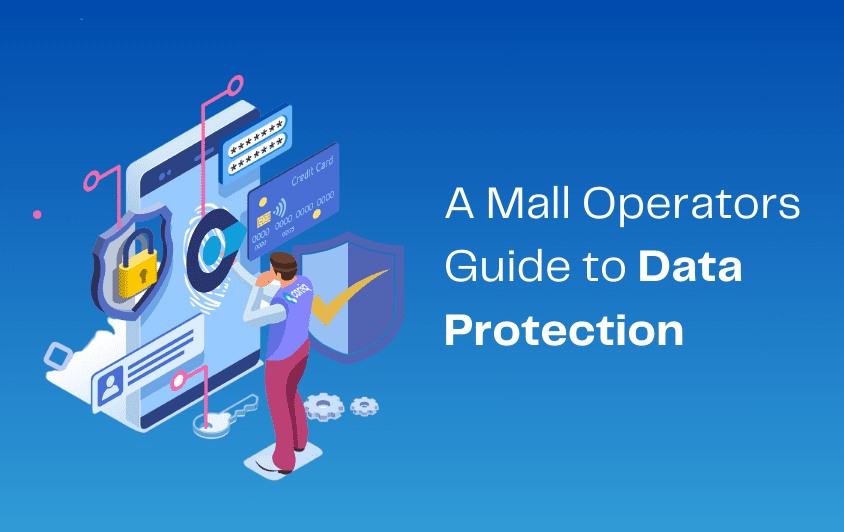Discover How Embracing F&B Delights and Experiences Can Add Value to Your Retail Destination
The Middle East is widely recognized for its emphasis on luxury retail experiences. With a focus on strategic design and immersive entertainment, the region is embracing the meaning of experiential retail.
Mall operators are shifting from conventional transactional retail models to embrace the idea of community-centric destinations. By integrating cutting-edge digital technologies and personalized services, the ‘community-centric mall’ aspires to provide a comprehensive retail experience within a single location, catering to the preferences of both locals and tourists and creating the ultimate space for leisure and exploration.
From retail and entertainment to groceries, food and beverages, dedicated workspaces, dining, beauty, and much more, this approach aims to provide the customer with a rounded experience, motivating shoppers to visit more frequently and stay on-site longer to enjoy the ‘day out’ experience.
Examples, such as Dubai Mall, provide a multitude of premium experience-based offerings, including an Olympic-sized ice rink, an aquarium, a 250-room hotel, and a retail floor area of over 5.4 million sq. ft. These features have helped Dubai Mall break the record for the highest annual footfall in the world multiple times since its launch in 2008. As a result of its success, it’s no wonder that mall operators in the Middle East see the potential in investing heavily in shopping mall ‘destinations’ that focus on creating tailored luxury experiences. In the Middle East, studies show that over 50% of consumers prefer spending money on retail experiences.
For the modern mall, this includes:
- Catering to the full spectrum of categories referenced above that provide the makings of a well-rounded ‘shop, dine and play’ experience.
- Building clean, aesthetic, eco-conscious environments with precise attention to detail.
- Going above and beyond to offer additional concierge-style services such as free parking and VIP lounges.
- Creating a seamless omnichannel customer journey across all touchpoints– for example: Whitelabel apps, shopping mall marketing, and effective loyalty programs.
Using F&B Offers to Elevate Your Retail Destination
A vital aspect of leisure revolves around food and beverages (F&B). For many, the ‘dining’ aspect of a day out is considered a key element. It’s no surprise then, that restaurant dining, fast food, and the casual coffee have become highly popular within the last 50 years, signifying the power that the F&B industry holds to drive additional footfall and increase dwell time.
In today’s landscape, your F&B offering is an area of great importance and one that can generate substantial revenue opportunities. Offering diverse and convenient F&B options encourages shoppers to take a much-needed break. Gathering together to enjoy a meal allows customers to feel relaxed and refreshed, creating the opportunity for enhanced engagement and customer satisfaction. Suddenly, you’ve managed to convert their general presence into an emotionally charged experience.
It could be as simple as creating an open food court space, like this one in Oman. Oman Avenues Food Hall is a great example of a carefully curated food and beverage experience that mall customers would expect within a themed dining environment. The result is a space where visitors can sample a diverse range of cuisines in a vibrant and welcoming garden landscape that offers a tranquil yet social atmosphere. Food halls have become popular in recent years as they provide a unique dining experience where a wide range of cultural dishes can be enjoyed in one location. Offering innovative F&B options like this can elevate a customer’s overall experience while increasing their dwell time and visit frequency.
Ways to Use F&B Brands to Drive Customer Engagement
Leveraging F&B experiences and delights within your loyalty program is a great way to foster engagement. There are many benefits to doing this:
- Gain insights into customer behavior and intent. Learn what motivates customers, how they behave, and which offers they redeem.
- Create engaging experiences that customers can get involved with (E.g. exclusive access to F&B events, VIP tastings for higher loyalty tiers, masterclasss with renowned chefs, etc.)
- Communicate your offering directly to customers – don’t just wait for them to find these activities; send push notifications, email campaigns, or advertise through your loyalty program.
- Provides a platform to create personalized experiences and premium offers, which fuels brand loyalty.
Leverage F&B Offers Within a Wider Loyalty Program
There are many ways in which you can integrate your food and beverage vendors into your wider engagement strategy. Here are some suggestions of popular F&B offers:
- Free or discounted items on birthdays and anniversaries
- Free food and drink items for returning customers
- Retail incentives – shop in-store to get an F&B voucher
- Points-based rewards – earn points to get discounted meals or free items
- Eat and play offers – create a multi-dimension incentive in conjunction with your entertainment function. For example, get a free popcorn when you buy attraction tickets
- Allow customers to enjoy discounted items during certain times of the week
- VIP rewards and experiences for tiered loyalty program customers
- Promote ‘pop-up’ restaurants that offer new cultural experiences such as street dishes
Create Unmissable F&B Experiences
Your customers may not always want to commit to a full meal, but this doesn’t mean that F&B offers cannot be leveraged. Here are some ways you can build an experiential environment that encourages dwell time without a three-course sit-down.
- Lay out break-out areas with charging stations and massage chairs, or kids’ soft play equipment, and offer coffee or refreshments nearby.
- Set up a cooking demonstration theatre, with resonated themes – for example, ’15-minute mid-week meals for all the family’.
- Allow your F&B brands to run taster stations in areas away from the main food court – they could offer a voucher to customers who go to the restaurant after tasting the samples.
- Place small cafés/coffee stands at regular intervals around the mall to encourage short but successful ‘pitstops.’
- Incorporate F&B vendors into wider mall experiences, e.g. themed restaurants or kids’ events
In conclusion, Middle Eastern shopping malls have seamlessly integrated into the social fabric of the region, offering not just retail spaces but thriving hubs for social interaction, culinary experiences, and diverse services. These evolving ‘community’ malls, extending beyond conventional shopping, have become indispensable for both residents and tourists seeking a multifaceted destination. With the potential for growth within the Food and Beverage (F&B) sector, these retail destinations are poised to further elevate the overall consumer experience, reflecting the dynamic evolution of the Middle East’s retail landscape. As these malls continue to adapt and expand, they remain central to the vibrant social life of the region.

